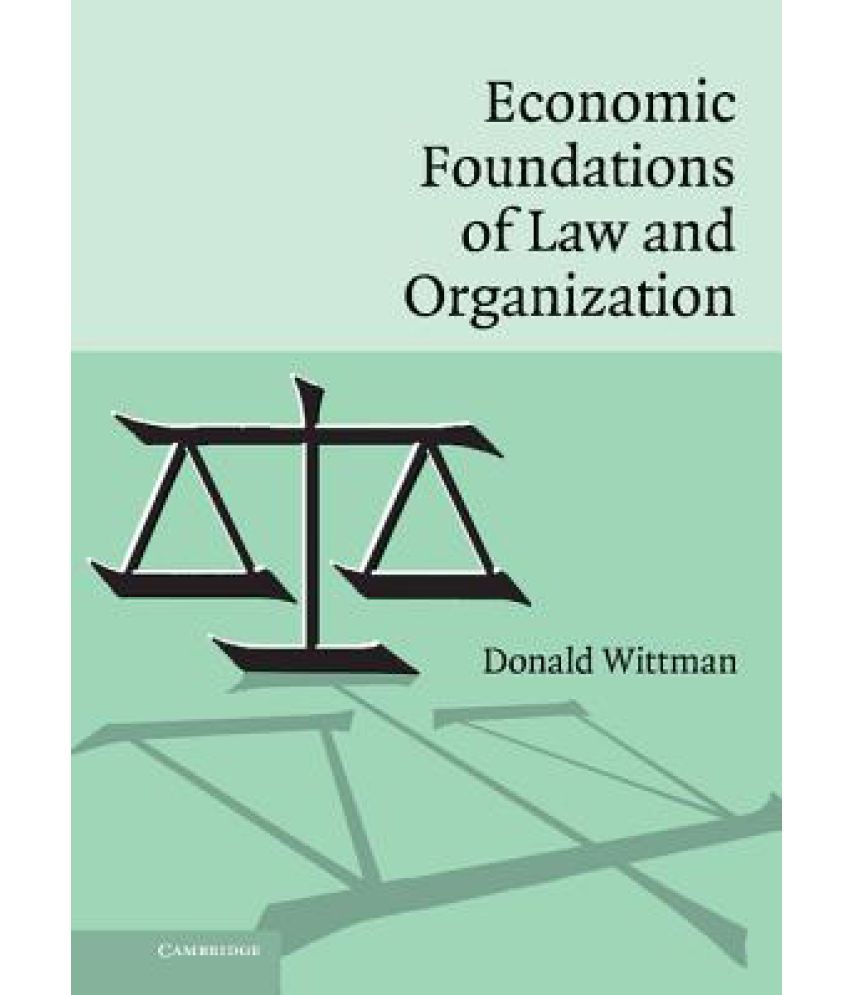Something went wrong. Please refresh the page and try again.
Something went wrong. Please refresh the page and try again.
Notifications can be turned off anytime from settings.
Item(s) Added To cart
Qty.
Something went wrong. Please refresh the page and try again.
Something went wrong. Please refresh the page and try again.
Exchange offer not applicable. New product price is lower than exchange product price
Please check the updated No Cost EMI details on the payment page
Exchange offer is not applicable with this product
Exchange Offer cannot be clubbed with Bajaj Finserv for this product
Product price & seller has been updated as per Bajaj Finserv EMI option
Please apply exchange offer again
Your item has been added to Shortlist.
View AllYour Item has been added to Shopping List
View AllSorry! Economic Foundations of Law and Organization is sold out.


You will be notified when this product will be in stock
Brief Description
This book serves as a compact introduction to the economic analysis of law and organization.
Learn More about the Book
This book serves as a compact introduction to the economic analysis of law and organization. At the same time it covers a broad spectrum of issues. It is aimed at undergraduate economics students who are interested in law and organization, law students who want to know the economic basis for the law, and students in business and public policy schools who want to understand the economic approach to law and organization. The book covers such diverse topics as bankruptcy rules, corporate law, sports rules, the organization of Congress, federalism, intellectual property, crime, accident law, and insurance. Unlike other texts on the economic analysis of law, this text is not organized by legal categories but by economic theory. The purpose of the book is to develop economic intuition and theory to a sufficient degree so that one can apply the ideas to a variety of areas in law and organization.
Review Quotes
1. 'This is a fascinating textbook. The writing is simple and down to earth, the ideas often complex and worth thinking about - a terrific combination in any book. It takes a fresh and easily readable approach to some familiar topics in law and economics. It should find a wide audience.' Prof. Keith Hylton, Boston University Law School
2. 'This text is interesting and valuable, and has many useful things to say about both law and organization from a solid economic perspective. The author is a well-spring of theoretical knowledge, legal cases, examples, and stories, and this serves his teaching purposes well. An excellent textbook.' Prof. Avner Ben-Ner, Carlson School of Management, University of Florida
3. 'I think that everyone teaching law and economics will want to buy a copy of this book. The 'bite-sized' chapters are easy to digest and well-directed. Professor Wittman has given us a concise discussion of a wide range of topics. I can guarantee that it will join David Friedman's book as the subject's most popular crib sheets.' Prof. Stephen Medema, University of Colorado, Denver
4. "Wittman takes a fresh approach to law and economics, rethinking the traditional subject areas and covering many new ones." - Michelle J. White, University of California, San Diego
5. "Wittman has written an economists' law and economics text. It is organized around economic, not legal, principles. It provides an economic analysis of legal and organizational issues. More importantly, it showcases the power and flexibility of economic analysis in unusual and interesting settings." - Paul H. Rubin, Emory University
6. "Wittman has succeeded in writing a textbook that distinguishes itself from the competition in its topical orientation and its organizational structure.... I would recommend this book to instructors who teach law-and-economics to general economics majors (or as a prelude to a more advanced law-and-economics course), or, as Wittman suggests in his introduction, a supplement to intermediate microeconomics courses focusing on the Coase Theorem and transaction costs." - Eastern Economic Journal
7. "A huge amount of law, as it relates both to individual rights and social organization, can be simply and effectively explained by the consistent application of a few basic economic concepts. In this volume, Don Wittman deftly uses two key tools - an accurate definition of social welfare and the critical role of transaction costs - to show the common threads that unite such disparate legal fields as bankruptcy, contracts, land use planning, and torts. His useful, rigorous and readable introduction to the principles of economics lays the groundwork for further study at the intersection of law and social organizations." - Richard A. Epstein, University of Chicago"
8. "Readers will welcome the sophistication of this book on the new and growing subject of economics and law for its two distinctive qualities. First, it is organized around themes of economic theory. This allows the reader to gain a kind of insight that would not be possible were the book organized in the more usual way, according to legal subject matter. Second, the book covers more than purely legal subject matter - it discusses important aspects of organizations and their governance. I enthusiastically recommend the book to students and scholars alike." - Steven Shavell, Harvard Law School"
The images represent actual product though color of the image and product may slightly differ.
Register now to get updates on promotions and
coupons. Or Download App